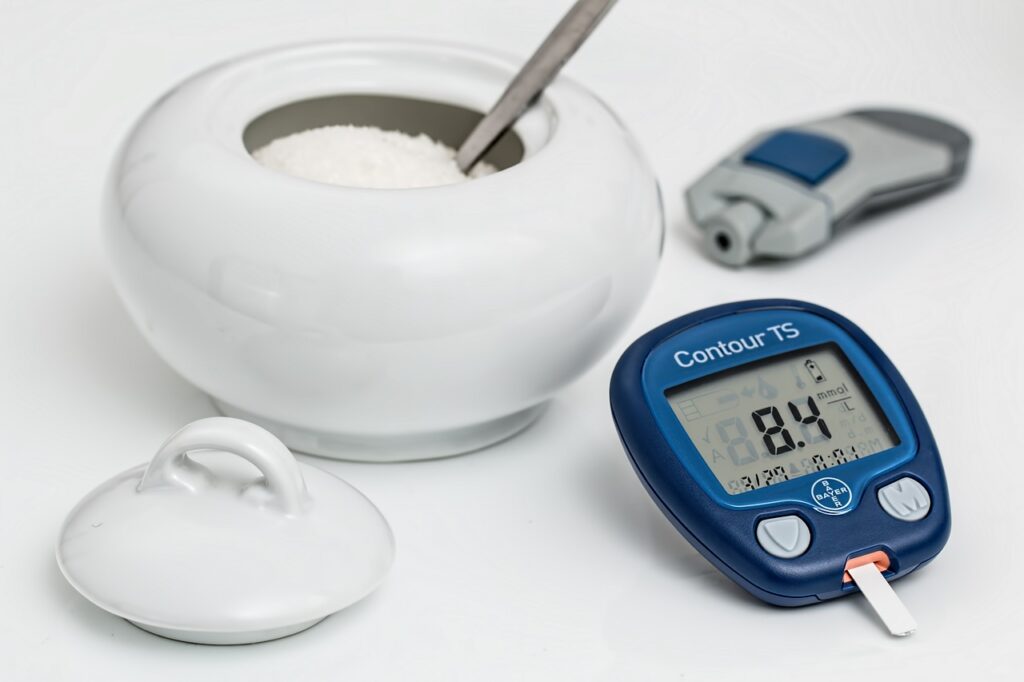
By Omodele Hogan, MD
Produced by the pancreas, insulin is a hormone that regulates the amount of glucose in your blood and works to keep your blood sugar levels in balance.
However, when the cells in your body become less responsive to insulin a condition known as insulin resistance can develop.
And in some people, insulin resistance can be a precursor to prediabetes and eventually type 2 diabetes.
That is why it is so important to see your doctor for regular check-ups so they can monitor your blood sugar levels and detect any potential problems before they cause serious health complications.
A Finely Tuned Process Begins to Break Down
Glucose is a type of sugar that serves as the primary source of energy for your body. It is a simple carbohydrate found in many foods, such as fruit, bread and pasta.
In simplest terms, glucose provides the energy needed to power your body.
When you eat foods containing carbohydrates, your digestive system breaks them down and sends the glucose into your bloodstream.
Your pancreas responds by releasing insulin, which helps your cells take in the glucose they need for energy. Excess glucose that is not immediately used for energy is stored in the liver and muscles for future use.
If your cells do not respond to insulin as they should — if they are insulin resistant, in other words — your pancreas will keep producing more and more to try to regulate your blood sugar.
Over time, however, your pancreas may not be able to keep up and this finely tuned process can begin to break down, resulting in blood sugar levels that remain elevated. This can lead to prediabetes and increase the risk for type 2 diabetes.
Prediabetes is characterized by fasting blood sugar levels that are higher than normal — between 100 and 125 mg (milligrams)/dL (deciliter) — or an A1C (level) between 5.7 – 6.4%. While these levels are elevated, they are not high enough to be classified as diabetes.
Diabetes is characterized by a fasting blood sugar level of 125 mg/dL and over or an A1C of 6.5% and higher.
An estimated 98 million – more than 1 in 3 – adults in the United States have prediabetes and another 36 million are estimated to have type 2 diabetes, according to the Centers for Disease Control and Prevention.
No Early Warning Signs
Insulin resistance and prediabetes typically don’t have any symptoms, which means you could live with the conditions for years and not know it. If prediabetes progresses to type 2 diabetes symptoms could include:
- Increased thirst.
- Increased urination.
- Blurry vision.
- Feeling very tired.
- Numbness or tingling in your hands or feet.
Left undetected and untreated, type 2 diabetes can cause serious health complications, such as heart attack, stroke, vision loss, or kidney failure.
Are You at Risk?
The risk factors that contribute to the development of insulin resistance and prediabetes are the same risk factors associated with type 2 diabetes. You may be at risk if you:
- Are overweight or obese, especially if the weight is in your abdomen.
- Do not exercise at least three times a week.
- Eat an unhealthy diet.
- Have a family history of diabetes.
- Are an African American, Hispanic or Latino, American Indian, Asian American or Alaska Native person.
- Have polycystic ovarian syndrome.
- Have high blood pressure.
- Had gestational diabetes during pregnancy.
If you are concerned about your risk for high blood sugar, talk to your doctor. A simple blood sugar test can determine whether you have prediabetes or type 2 diabetes.
Take Steps Now to Prevent Type 2 Diabetes Later
Fortunately, there are steps you can take to manage your blood sugar and treat prediabetes now before it progresses to type 2 diabetes later.
- Lose excess weight. If you are overweight, losing just 5% of your total weight can help lower your blood sugar and treat prediabetes.
- Eat a healthy diet. Choose foods such as non-starchy vegetables, fruits, lean proteins (fish, chicken, turkey, eggs, tofu), healthy fats (olive oil, avocado) and water and unsweetened beverages. Avoid processed foods, foods with trans-fat, sugary drinks and alcohol. Control portion sizes.
- Get at least 150 minutes of moderate intensity exercise a week. To do this, aim for 30 minutes of exercise five days a week. Sit less. Set a timer to remind you to get up every hour to move around and stretch.
- Don’t smoke. Smoking may increase the risk for insulin resistance and prediabetes and can increase the risk for complications from diabetes.
- Be sure to visit your doctor annually for a complete physical and blood glucose test to check your blood sugar levels. In some cases, your doctor may recommend a continuous glucose monitor to reveal how your body responds to the foods you eat and identify opportunities to fine tune your diet to keep your blood sugar levels in a healthy range.
Though distinct conditions, insulin resistance and prediabetes are interconnected and play a significant role in the development of type 2 diabetes. By eating a healthy diet, exercising regularly and maintaining a healthy weight, you can manage your blood sugar and prevent or slow the progression of more serious disease.
To find a physician with Penn Medicine Princeton Health, call (888) 742.7496 or visit www.princetonhcs.org.
Omodele Hogan, MD, is board certified in endocrinology, diabetes and metabolism, and is a member of the medical staff at Penn Medicine Princeton Health.
